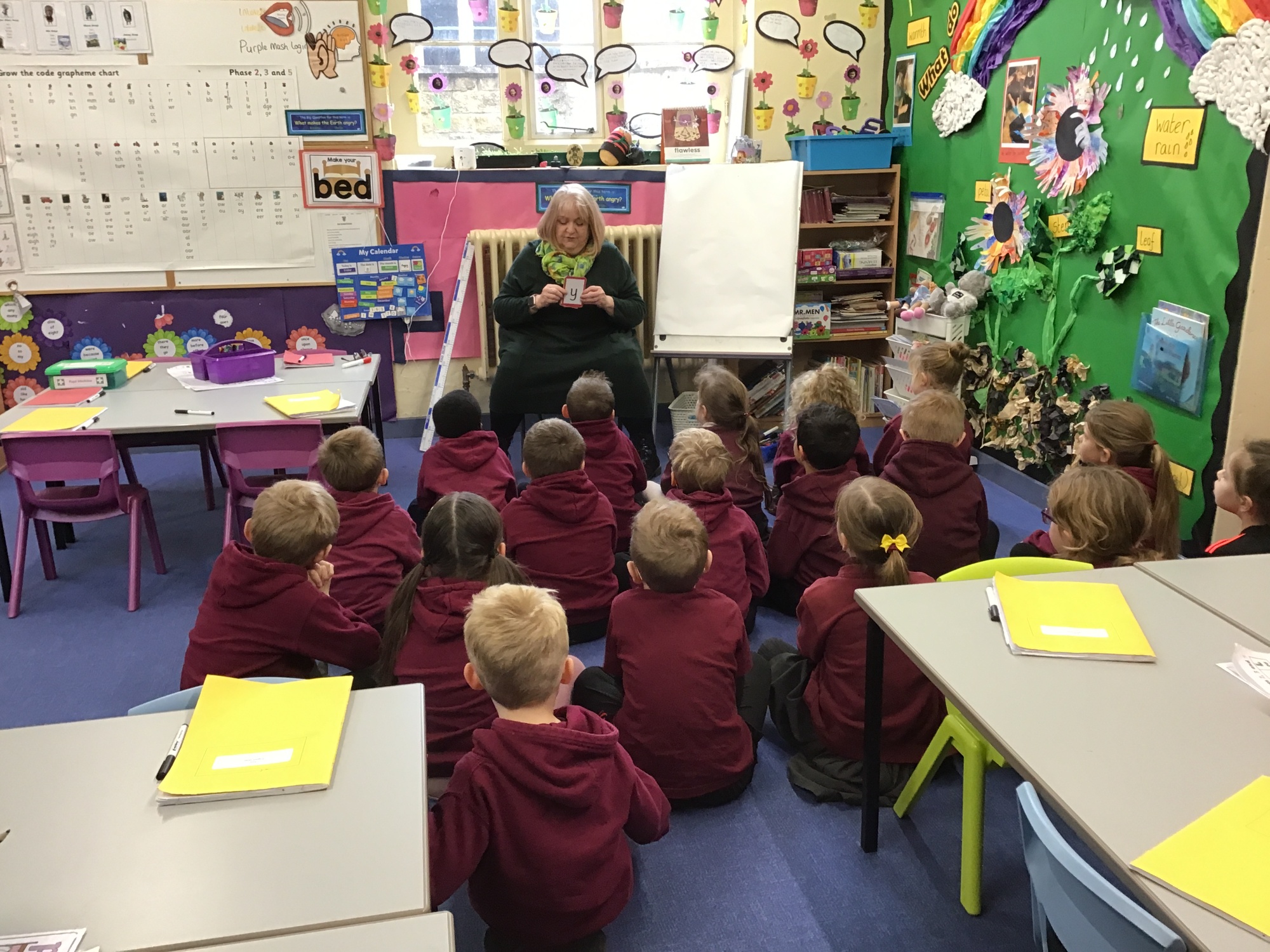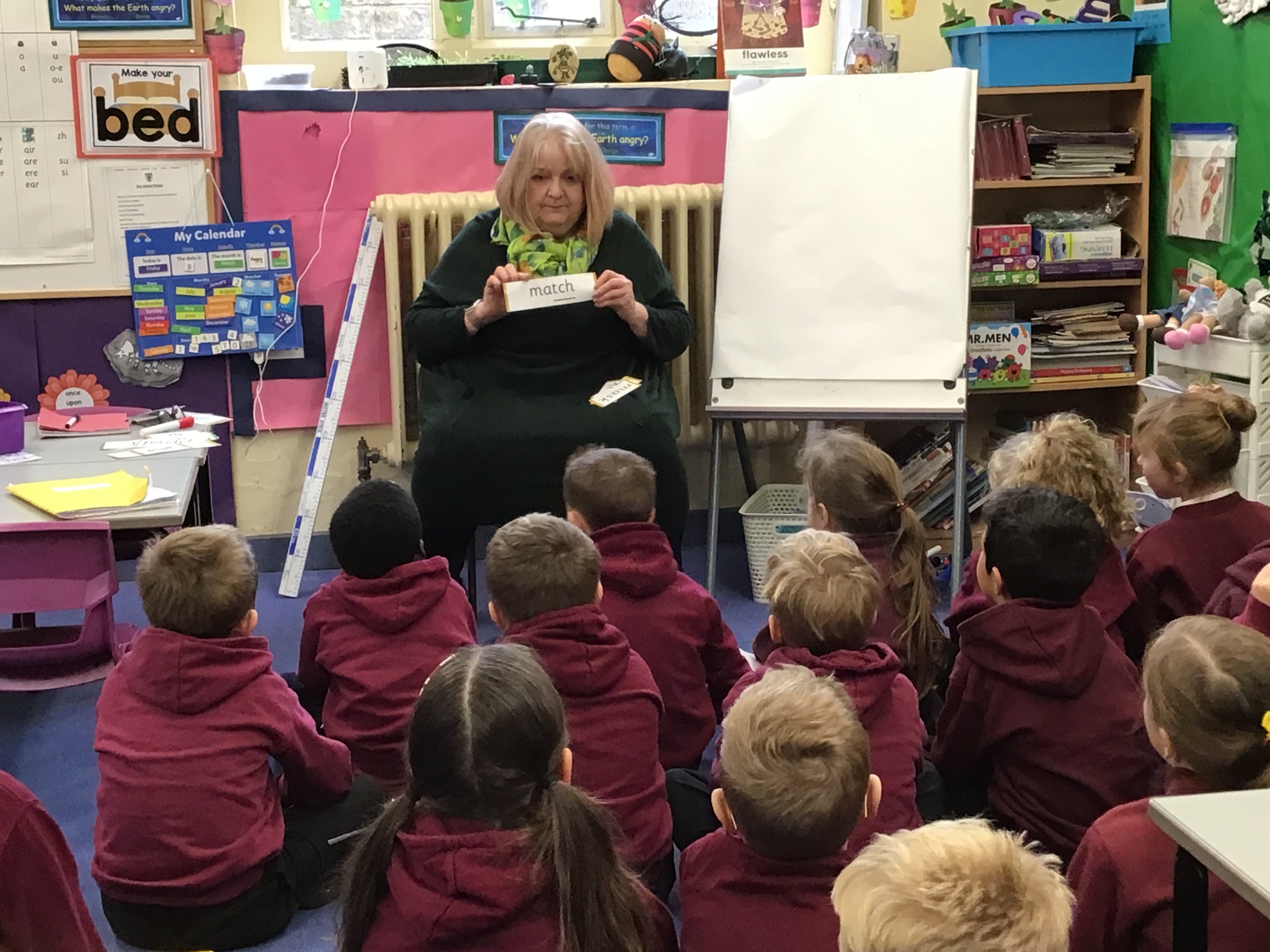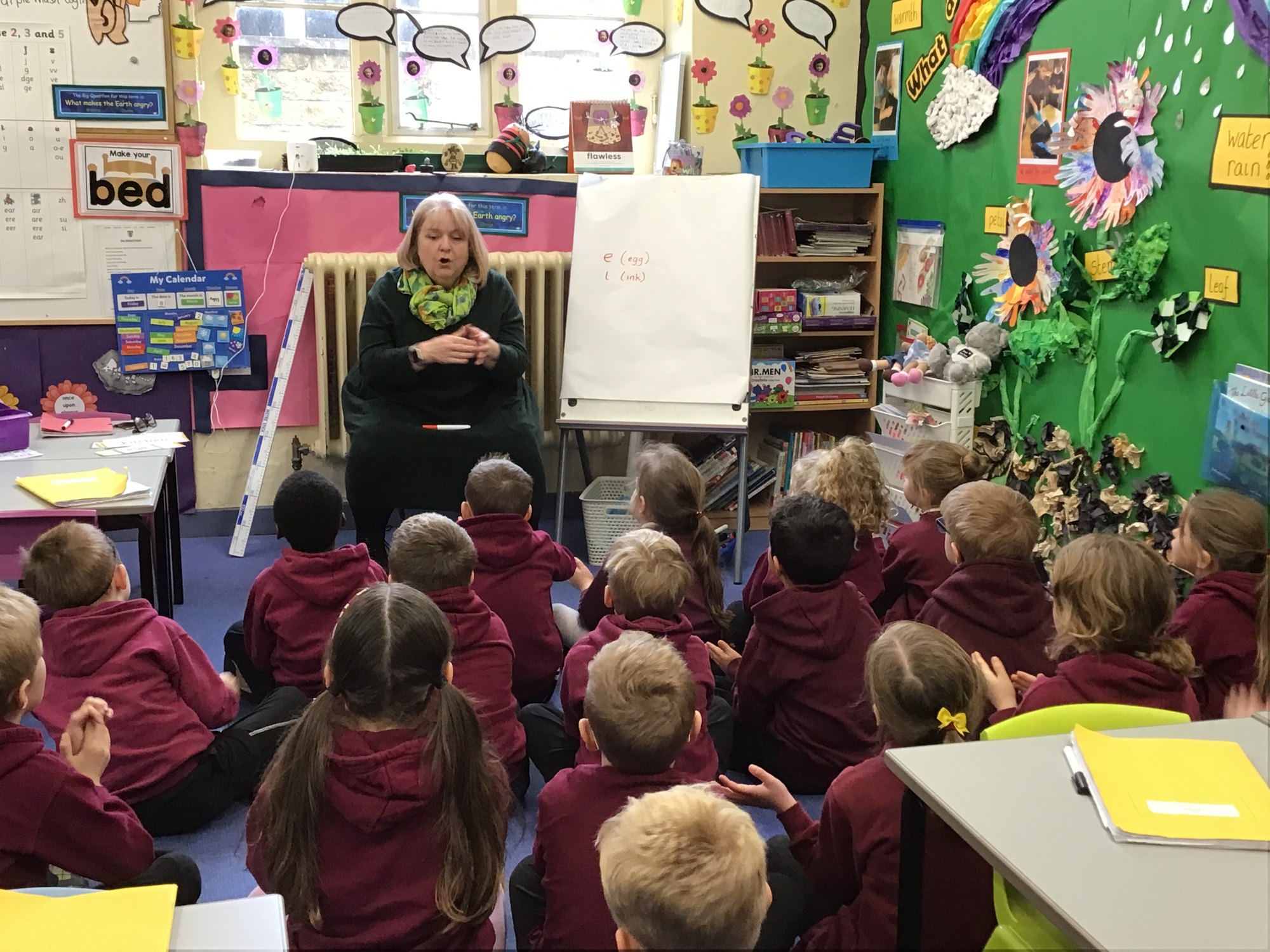Phonics and Early Reading
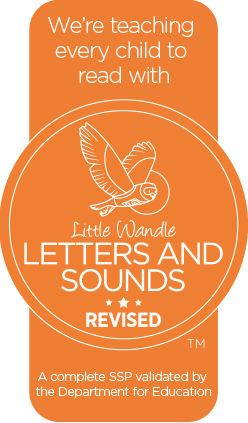
Intent
At Elton C of E Primary School, we believe that all our children can become fluent readers and writers. This begins with the teaching of early reading and phonics through the DfE approved systematic synthetic Phonics (SSP) scheme, ‘Little Wandle Letters and Sounds Revised Progression’.
Children need to learn to read as quickly as reasonably possible, so they can move from learning to read to reading to learn, giving them access to the treasure house of reading. Our lessons are designed to meet the children’s needs based on our ongoing phonic assessments. This informs planning and streaming within year groups. Children who are not keeping up with their peers will be given additional practice immediately through keep-up sessions.
Implementation
Phonics lesson Structure
We teach a comprehensive programme daily which provides a multi-sensory approach, using flashcards, phonic games, listening and writing activities. Using the Little Wandle Letters & Sounds lesson structure, each session is taught for up to 30 minutes following the same format of revisit and review, teach, practise and apply.
Phonics is split up into five phases and is taught in Reception and Year 1. The Phonics programme overview shows the progression of GPCs and tricky words that we teach term by term. The progression has been organised so that children are taught from the simple to more complex GPCs, as well as taking into account the frequency of their occurrence in the most commonly encountered words. Children work on decoding, segmenting and blending in every lesson. Children are exposed to and use the correct subject-specific technical vocabulary (such as phoneme, digraph, and trigraph). All the graphemes taught are practised in words, sentences, and later on, read in fully decodable books. Children review and revise GPCs and words, daily, weekly and across terms and years, in order to move this knowledge into their long-term memory.
The Little Wandle website provides guidance on how some of these elements are covered:
https://www.littlewandlelettersandsounds.org.uk/resources/for-parents/
Click here to see the Little Wandle ‘Programme Progression’ document.
Click here for the 'Grow the Code' grapheme mat (as used in the classroom to support children with blending and segmenting)
Click here for a video to demonstrate the correct enunciation for each of the 44 sounds.
Tricky words
In addition to the phases of phonemes, children will also be introduced to ‘tricky words’ during their Phonics lessons. Tricky words are simply those words which do not follow the pattern of sounds taught through phonics and are spelt in an unusual or uncommon way. Tricky words will need to be learnt by sight.
Click here to see the ‘Programme Progression’ document which shows the tricky words in the order they are taught.
Phonics mats
During all lessons, children are encouraged to use the Little Wandle Grapheme Mats (Grow the Code) in the classroom to help them to make phonetically plausible decisions with their independent writing. These are used to support children throughout the school as a visual aid for writing and editing independent work.
Click on the links below for your own copy to use at home. You can ask your child’s teacher if you would like to know how to use these to support your child at home. Check out the Homework Help section of our website to see further resources.
Click here for the Reception (phase 2 and 3) Grapheme Mat
Click here for the Year 1 (phase 2, 3 and 5) Grow the Code Grapheme Mat
Reading Practice Structure
Children in Reception and Year 1 will participate in Reading Practice Sessions with a fully trained adult. This is taught three times a week in small groups of up to six children. The books the children will be reading in these sessions are the Big Cat Little Wandle Books. These books will be carefully matched to the child’s secure phonic knowledge through regular formative and summative assessments. The children will read the same book three times, with a clear focus on different reading skills in each session.
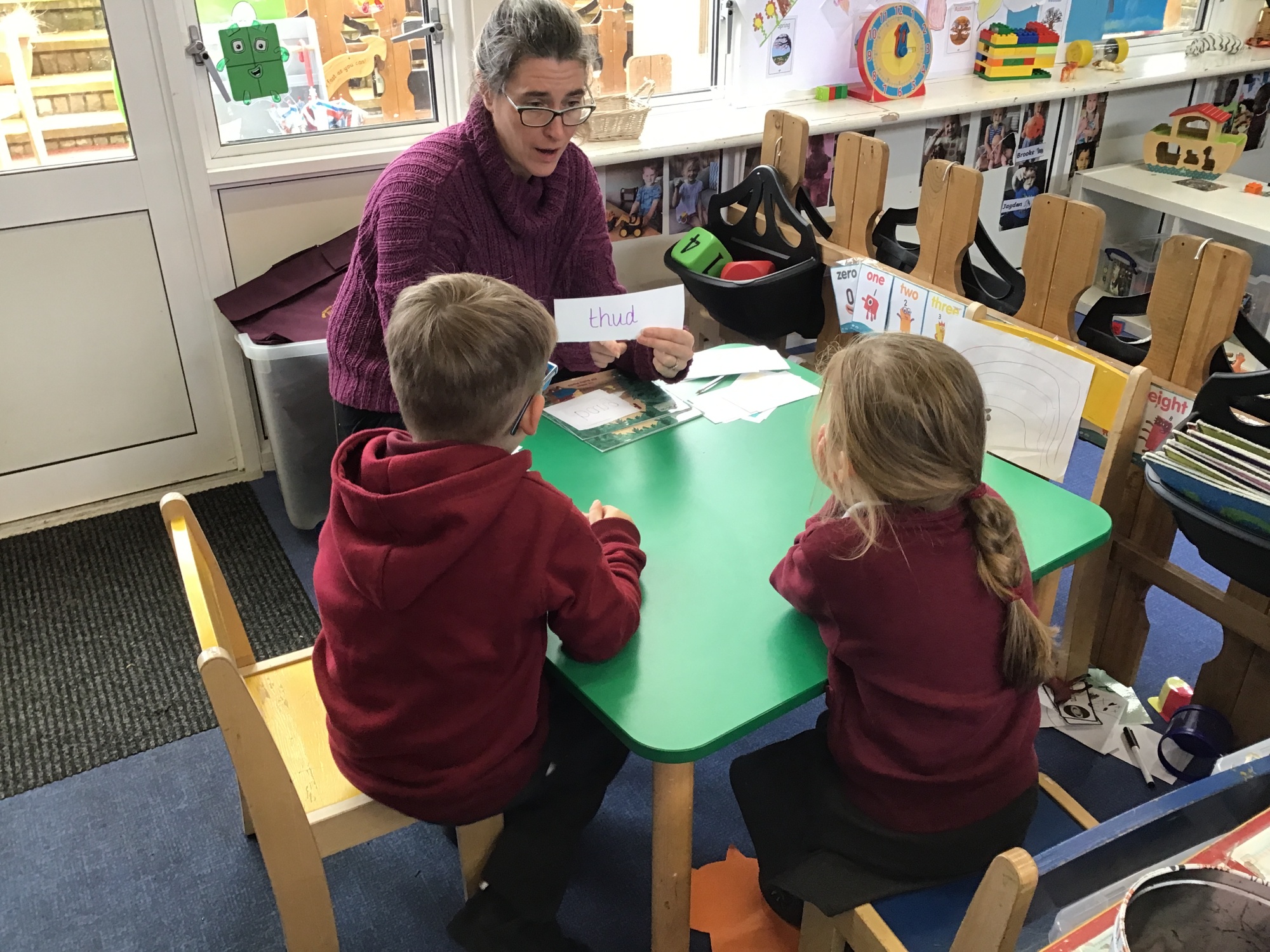
Session 1 Decoding – the children will apply their phonic knowledge to read words.
Session 2 Prosody – the children will read the book again and practise reading with prosody: teaching to read with understanding and expression. The children develop reading with appropriate meaning, stress and intonation. It provides an opportunity to explore characters’ feelings, what words mean and how punctuation adds to the meaning.
Session 3 Comprehension – This focus is on teaching the children to understand the text. The focus will be on identifying key aspects of the text, retrieval and prediction. The children will be reading detectives where they will find clues in the book to answer questions.
Impact
The children will draw on their knowledge of vocabulary to understand texts. They will:
- Identify/explain key aspects of fiction and non-fiction texts.
- Identify and explain the sequence of events in the text.
- Inference and deduction.
- Prediction.
Children will then read this book at home after their three sessions. We aim for the children to be able to read the book with 90% fluency. These books are accessed via the Collins E-book website using your child’s login https://ebooks.collinsopenpage.com/.
Assessment
Formative assessment is used to monitor progress and to identify any child needing additional support or further challenge as soon as they need it.
Summative assessment is used every six weeks for EYFS and Year 1 to assess progress, to help identify gaps in learning that need to be addressed, to identify children needing additional support or further challenge and to plan the support that they need.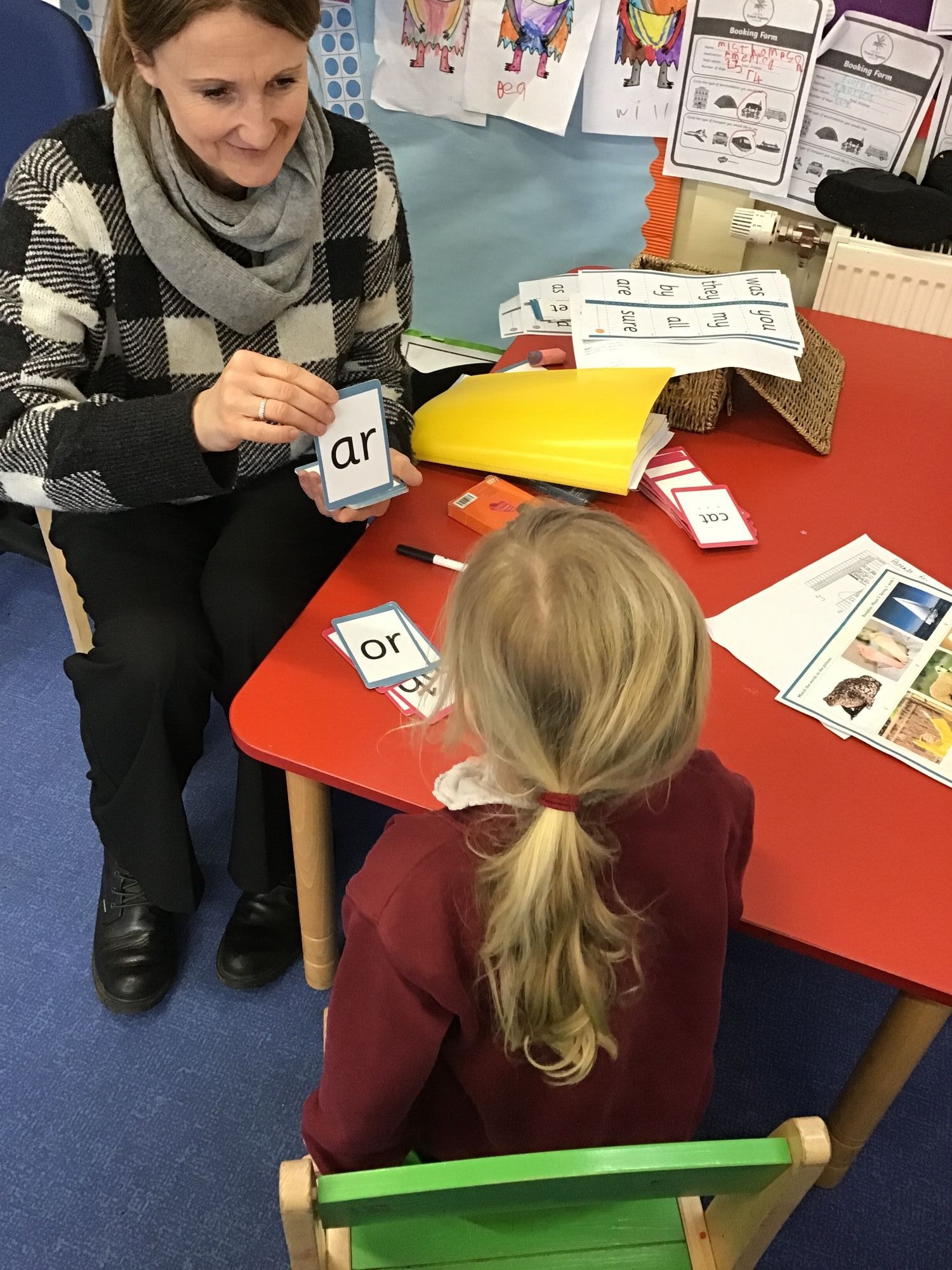
Phonics Screening Check
Children in Year 1 throughout the country will all be taking part in a Statutory Phonics Screening Check in June. Children in Year 2 will also take the check if they did not achieve the required result when in Year 1 or if they have not taken the test before. The phonics screening check is designed to confirm whether individual children have learnt phonic decoding and blending skills to an appropriate standard.
What Happens During the Screening?
The test contains 40 words. Each child will sit one-to-one and read each word aloud to their teacher. The test will take approximately 10 minutes per child, although all children are different and will complete the check at their own pace. The list of words the children read is a combination of 20 real words and 20 pseudo words (nonsense words). The pseudo words will be shown to your child with a picture of an alien. This provides the children with a context for the pseudo word which is independent of any existing vocabulary they may have. Pseudo words are included because they will be new to all pupils; they do not favour children with a good vocabulary knowledge or visual memory of words. We prepare children by introducing them to ‘alien’ words throughout their daily lessons using sounds that they have learnt. The pass mark last year was 32/40.
Click here for more information about the Year 1 Phonics Screening check.
Phonics in Each Stage
Phonics in EYFS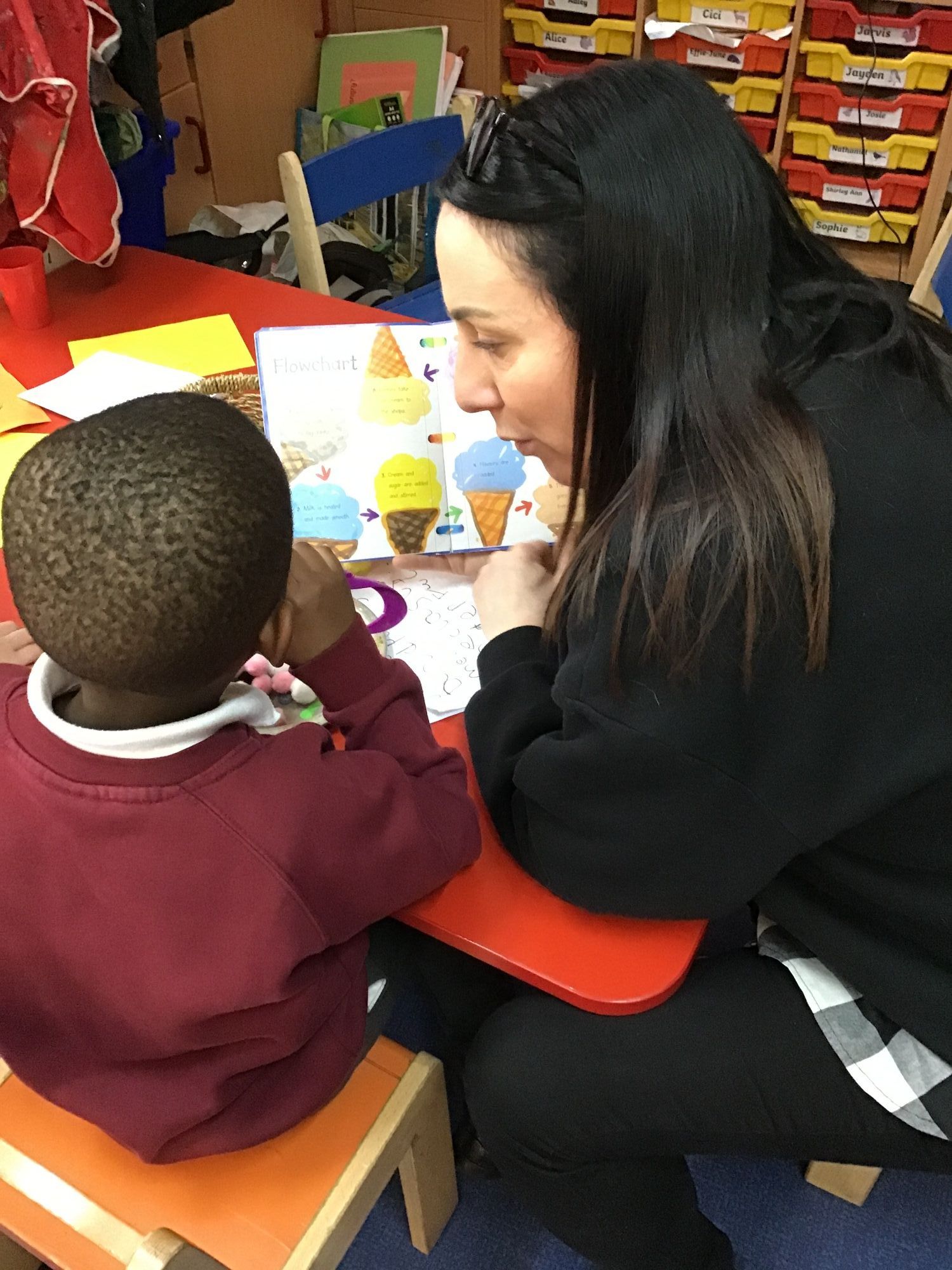
Phases 2, 3 and 4 are taught in Reception.
Children in Reception and Year 1 will participate in Reading Practice Sessions with a teacher. The books the children will be reading in these sessions are the Big Cat Little Wandle Books. These books will be carefully matched to the child’s current reading level. The children will read the same book three times, focusing on different reading skills in each session.
Phonics in KS1
In Year 1, we will review phases 3 and 4. We will introduce phase 5 and work through the alternative sounds, for some this may continue into Year 2.
Children in Reception and Year 1 will participate in Reading Practice Sessions with a teacher. The books the children will be reading in these sessions are the Big Cat Little Wandle Books. These books will be carefully matched to the child’s current reading level. The children will read the same book three times, focusing on different reading skills in each session. For some children this will continue into Year 2.
Phonics in KS2
If children need further support in their Phonics when they move into KS2, they will be put in an intervention that is tailored to them. This can include the Rapid Catch-Up programme and Reading Practice Sessions using the Big Cat Little Wandle Books.
SEND INFORMATION
Our SEND and disadvantaged pupils are given the necessary support in class to fully access the supported Phonics curriculum. Learning is adapted where necessary to support SEND/EAL pupils to give equal opportunities for all to be confident in approaching any problems faced. If, after “keep up” sessions and/or “catch up” sessions, a child has still not acquired the necessary skills then we use the Little Wandle SEND programme. Interventions, support and challenges are constantly revised and adapted to ensure all children are supported in achieving learning and strategies are personalised where appropriate (e.g., according to their APDR). The above areas are robustly and continuously monitored to ensure any gaps in learning are addressed.





